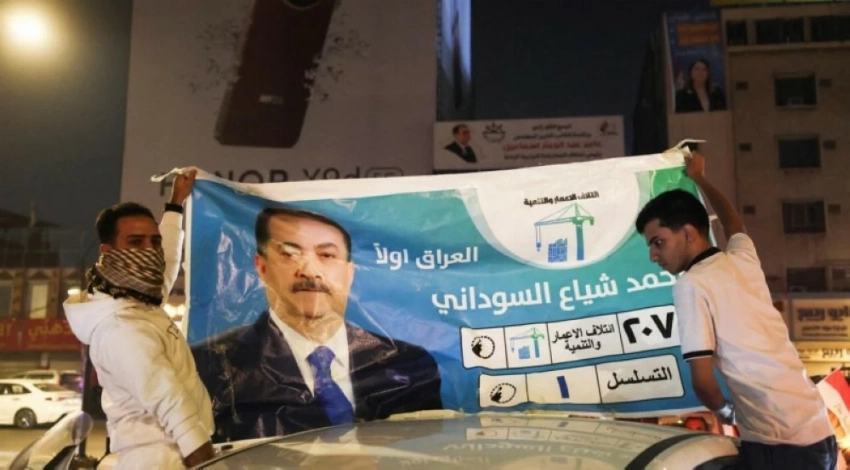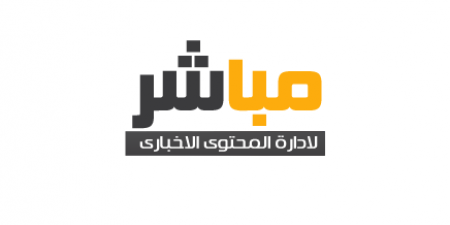نعرض لكم زوارنا أهم وأحدث الأخبار فى المقال الاتي:
هل تنجح القوى السياسية العراقية في تشكيل الحكومة الجديدة ؟ - المصدر 24, اليوم السبت 15 نوفمبر 2025 07:20 مساءً
المصدر 24 - ما بين الانقسامات الداخلية العميقة والضغوط الخارجية المتزايدة، يزداد المشهد السياسي العراقي تعقيداً مع الإعلان عن النتائج الأولية للانتخابات التي أُجريت في 11 نوفمبر الجاري.
لقد أسفرت هذه الانتخابات عن نتائج واضحة في توزيع المقاعد، وحصد «الإطار التنسيقي» الذي يمثل البيت الشيعي أغلبية المقاعد (187 مقعداً)، ما يجعله مؤهلاً لإعلان نفسه الكتلة النيابية الأكثر عدداً المخولة دستورياً بتسمية رئيس مجلس الوزراء القادم. لكن «الإطار التنسيقي» ذاته يواجه تحدي بروز ائتلاف الإعمار والتنمية بقيادة رئيس الوزراء الحالي محمد شياع السوداني، كأكبر كتلة شيعية (46 مقعداً)، يصطدم برفض باقي أطراف البيت الشيعي لتجديد ولايته، خوفاً من تداعيات ذلك على مستقبلهم السياسي، كما يرى رئيس الوزراء السابق نوري المالكي (28 مقعداً ضمن الإطار التنسيقي). هذه الخلافات الداخلية هي التي تُبقي مصير تسمية رئيس الحكومة معلقاً، وتفتح الباب أمام خيارات «مرشح التسوية» أو الشخصيات المستقلة، أو رئيس وزراء توافقي في حال دخل العراق في دائرة الانسداد السياسي، كما في مرات سابقة.
الخلافات الداخلية العراقية
في المقابل، حصل البيت السني على 77 مقعداً، بينما جاء البيت الكردي ثالثاً بـ56 مقعداً.
وكما يُقال، «العلة دائماً تكمن في التفاصيل»، يرى المالكي أن «تجديد ولاية أخرى للسوداني معناه أنه سيقضي عليهم سياسياً»، لهذا السبب فإنه ليس من المستغرب أن يكون هناك مرشح تسوية أو شخصية تمتلك مقعداً أو مقعدين لتولي منصب رئيس مجلس الوزراء، كما حصل سابقاً عندما تولى رئيس الوزراء السابق حيدر العبادي المنصب. أو قد يتم اللجوء إلى شخصية مستقلة لم ترشح للانتخابات أساساً مثلما حصل مع رئيسي وزراء سابقين أمثال عادل عبد المهدي أو مصطفى الكاظمي. ومن المتوقع أن هذه الأزمة لن تنتهي بسهولة وقد يستغرق الأمر عاماً كاملاً مثلما حصل في الدورة الماضية عندما دخلت الأطراف السياسية في انسداد سياسي انتهى بالتوافق على تكليف رئيس الوزراء الحالي السيد السوداني بالمنصب.

وفي ما يخص باقي المكونات، فإن مناصب البيت السني معروفة ابتداء من منصب رئيس مجلس النواب وبعض الوزارات، وكذلك الحال بالنسبة للبيت الكردي لمنصب رئيس الجمهورية وبعض الوزارات. لكن المناصب السيادية لن تتم تسميتهما ما لم يسمِ ويتفق البيت الشيعي على مرشحه لمنصب رئيس مجلس الوزراء القادم.
الضغوط الخارجية
ويزداد المشهد السياسي العراقي تعقيداً بسبب الضغوط الخارجية، وتحديداً الضغوط الأمريكية، فالولايات المتحدة وضعت شروطاً مسبقة أمام أي رئيس وزراء قادم ملزمة التنفيذ حتى ينال بها الضوء الأخضر الأمريكي. تتركز هذه الشروط الناتجة عن عودة الاهتمام الأمريكي بالملف العراقي على نقاط رئيسية هي: سحب السلاح المنفلت، وإنهاء دور المليشيات الموالية لدولة خارجية. حل هيئة الحشد الشعبي أو دمجها ضمن مؤسسات الدولة العراقية. لكن الأمر الأخطر يتعلق بموقف الولايات المتحدة من جهات وأطراف وشخصيات عاقبتهم وزارة الخزانة الأمريكية أخيراً، الذين حصدوا أكثر من 30 مقعداً نيابياً. هذه الشخصيات ستبحث عن تمثيل وزاري في الحكومة القادمة وسيرتفع سقف مطالبها للحصول على مناصب أمنية كبيرة.
يُفضي هذا إلى سلسلة من التساؤلات التي تدور حول «هل ستؤجل الولايات المتحدة اعترافها بالحكومة القادمة إذا كان للأطراف المعاقبة أمريكياً تمثيل وزاري فيها؟ أم ستعمل على حظرهم من العمل السياسي واستبعادهم من المشهد؟ أم أن أطرافاً خارجية أيضاً لهم دور في تشكيل الحكومات العراقية المتعاقبة ستساندهم وتبقيهم في المشهد؟ وتساؤلات أخرى قد تكون الإجابة عنها لدى المبعوث الأمريكي الخاص إلى العراق مارك سافايا.
وهناك تسريبات بأن فريق عمل هذا المبعوث قد يشهد تغييرات في بعض مناصبه وإضافة شخصيات ذات خبرات سياسية، وذلك نظراً إلى أن مارك سافيا ليست لديه أية تجربة سياسية سابقة.
يُشار إلى أن البيت الشيعي قام بالفعل بتسمية شخصية سياسية وتخويلها بكامل الصلاحيات للتفاوض مع المبعوث الأمريكي الذي تم تعيينه في سياق الإدارة الأمريكية السابقة أو الحالية لملف العراق.
وفي ظل استمرار الضغط المزدوج الداخلي والخارجي، يبدو أن مفاتيح التوافق قد تكون بعيدة المنال، وقد يتطلب الأمر وقتاً طويلاً للوصول إلى تسوية سياسية ترضي جميع الأطراف المتنافسة والمؤثرة على القرار العراقي إقليمية كانت أو دولية.
Amid deep internal divisions and increasing external pressures, the Iraqi political scene is becoming more complex with the announcement of the preliminary results of the elections held on November 11.
These elections resulted in clear outcomes in the distribution of seats, with the "Coordination Framework," representing the Shiite house, winning the majority of seats (187 seats), making it eligible to declare itself the largest parliamentary bloc constitutionally authorized to name the next Prime Minister. However, the "Coordination Framework" itself faces the challenge of the emergence of the "Reconstruction and Development Coalition," led by the current Prime Minister Mohammed Shia' al-Sudani, as the largest Shiite bloc (46 seats), which clashes with the rejection of other Shiite factions to renew his term, fearing the repercussions on their political future, as former Prime Minister Nouri al-Maliki (28 seats within the Coordination Framework) sees it. These internal disagreements are what keep the fate of naming the Prime Minister in limbo, opening the door to options for a "settlement candidate" or independent figures, or a consensus Prime Minister in case Iraq enters a political stalemate, as has happened in previous instances.
Iraqi Internal Disagreements
In contrast, the Sunni house secured 77 seats, while the Kurdish house came in third with 56 seats.
As the saying goes, "the devil is always in the details," Maliki believes that "renewing another term for al-Sudani means that he will politically eliminate them," which is why it is not surprising that there could be a settlement candidate or a figure holding one or two seats to take on the position of Prime Minister, as happened previously when former Prime Minister Haider al-Abadi assumed the role. Alternatively, there may be a resort to an independent figure who was not nominated for the elections at all, as was the case with former Prime Ministers such as Adel Abdul Mahdi or Mustafa al-Kadhimi. It is expected that this crisis will not end easily and may take a full year, similar to what occurred in the previous term when political parties entered a political stalemate that ended with a consensus on assigning the current Prime Minister, Mr. al-Sudani, to the position.

Regarding the other components, the positions of the Sunni house are known starting from the position of Speaker of the House and some ministries, as is the case for the Kurdish house regarding the presidency and some ministries. However, the sovereign positions will not be named unless the Shiite house names and agrees on its candidate for the position of the next Prime Minister.
External Pressures
The Iraqi political scene is further complicated by external pressures, specifically American pressures, as the United States has set preconditions for any incoming Prime Minister that must be implemented to gain American approval. These conditions, stemming from renewed American interest in the Iraqi file, focus on key points: the disarmament of rogue weapons and ending the role of militias loyal to a foreign state. The dissolution of the Popular Mobilization Forces or their integration into Iraqi state institutions. However, the more dangerous issue concerns the United States' stance on entities, parties, and figures recently sanctioned by the U.S. Treasury, who secured more than 30 parliamentary seats. These figures will seek ministerial representation in the upcoming government, and their demands for significant security positions will rise.
This leads to a series of questions revolving around "Will the United States delay its recognition of the upcoming government if the U.S.-sanctioned parties have ministerial representation in it? Or will it work to ban them from political activity and exclude them from the scene? Or will external parties that also play a role in forming successive Iraqi governments support them and keep them in the scene?" Other questions may have answers with the U.S. special envoy to Iraq, Mark Savaia.
There are leaks suggesting that the team of this envoy may witness changes in some of its positions and the addition of politically experienced figures, given that Mark Savaia has no prior political experience.
It is noted that the Shiite house has already named a political figure and authorized them with full powers to negotiate with the U.S. envoy appointed in the context of the previous or current U.S. administration regarding the Iraqi file.
In light of the continued dual internal and external pressures, it seems that the keys to consensus may be out of reach, and it may take a long time to reach a political settlement that satisfies all competing parties influencing the Iraqi decision, whether regional or international.
قدمنا لكم زوارنا أهم وأحدث الأخبار فى هذا المقال : هل تنجح القوى السياسية العراقية في تشكيل الحكومة الجديدة ؟ - المصدر 24, اليوم السبت 15 نوفمبر 2025 07:20 مساءً










0 تعليق